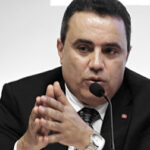Click here to read the full report, and follow us on Twitter and Facebook through the hashtag #TellADifferentStory.
The discussions took place in Brussels on September 28, 2016. Experts at the sessions agreed on the necessity to understand the ideology behind the propaganda of violent extremists in order to build constructive alternative narratives. In the words of Alex P. Schmid, Director of the Terrorist Research Initiative, “a narrative is much more than a series of messages: a narrative is a series of stories that come from the hearts and goes to the hearts. Stories with a soul”. In this sense, the report points out to key areas that should be included in a new and more comprehensive PVE framework: inclusiveness and Shared Societies, good governance, long-term prevention, empowering youth, technology and education. In addition to this, participants stressed that local communities are the best allies in preventing people from being radicalized into violent extremism.
The project: ‘Preventing Violent Extremism: Leaders Telling a Different Story’, organized by the Club de Madrid (CdM) and supported by the European Commission’s Directorate-General for International Cooperation and Development, aims at improving responses to violent extremism by developing effective alternative and positive narratives against violent extremism using media tools and evidence-based recommendations.
The meeting brought together leading experts in the field of P/CVE and counter narratives, EU representatives, government officials, youth’ and women’s groups representatives and media practitioners among others. The debates were led by CdM Members and former Prime Minister Mehdi Jomaa (Tunisia, 2014-2015), former Prime Minister Zlatko Lagumdžija (Bosnia & Herzegovina, 2001- 2002), and EU representatives Gilles de Kerchove, Counter-Terrorism Coordinator, Adriaan Van der Meer, former Head of Unit Stability, Security Development and Nuclear Safety, DG DEVCO, and Jean-Louis Ville, Acting Director, Directorate General for Human Development and Migration, European Commission.
The need of giving voice to the voiceless was also highlighted: civil society, youth, women and religious leaders, local messengers and victims of extremist groups, as well as former violent extremists, demand more platforms and spaces to tell their stories and personal experiences and, in this way, build a new counter – narrative. The role of the media, the necessity to identify a target audience based on scientific evidence and the importance of bridging the gap between current political leaders and civil society organizations were also discussed.
Participants identified challenges and opportunities for this global phenomenon, that requires a global and multi-faceted response: bridging the gap between national policies and local realities; the need for governments to start moving beyond ambiguous and vague approaches; and tackle the problem by increasingly engage civil society actors and communities in policy design and implementation through innovative and attractive strategies. Good governance as well as democratic principles and values were identified as the only path for addressing grievances and providing room for change.
The approaches, challenges and recommendations discussed in this meeting will be incorporated in the in-country and regional implementation of this project. The latter will be focused on two regions – Middle East and North Africa and West Africa – and three countries, Tunisia, Lebanon and Nigeria. The project methodology will include qualitative research and analysis; regional and national consultations; CdM Member led in-country missions and bilateral meetings; and an on-line campaign and evidence-based recommendations.
Club de Madrid, Media Contacts:
Luis Pérez: +34 607 694 354 // + 34 91 154 82 38 Press Officer lperez@clubmadrid.org
Ana Pastor: +34 722 484 282 // +34 91 154 82 36 Press & Communications apastor@clubmadrid.org


